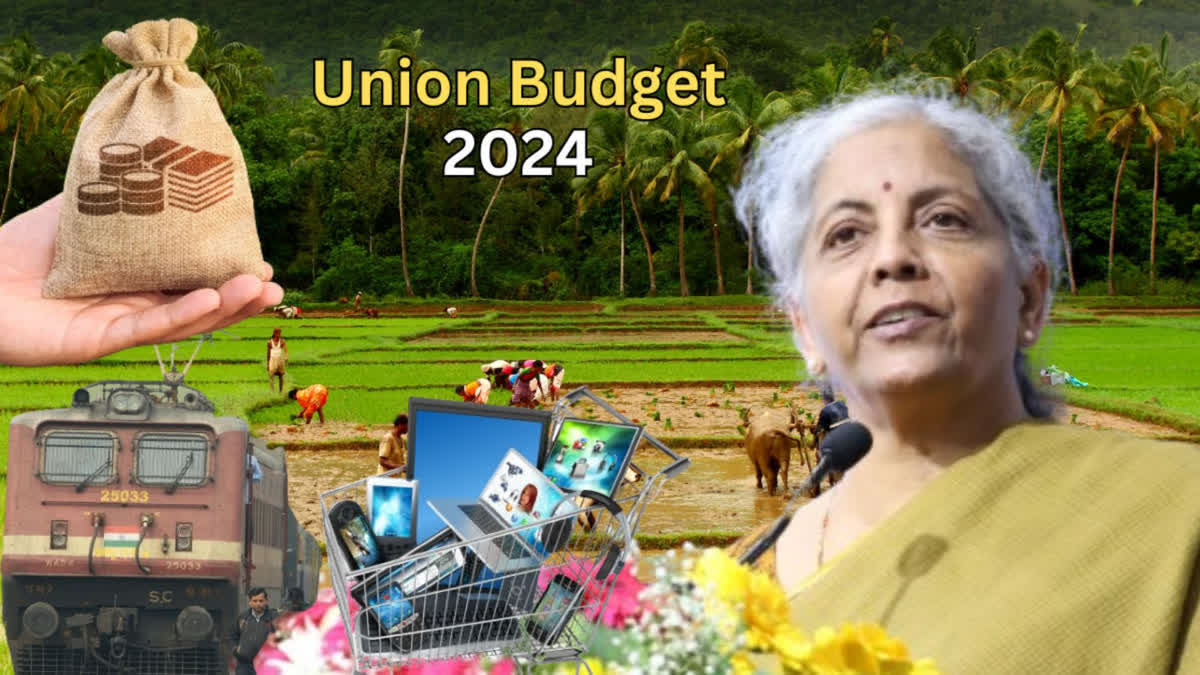Hyderabad : Finance Minister Nirmala Sitharaman is all set to present the Votes on Account on February 1 this year which will contain the estimates of the government's expected revenue receipts and expenditures for the next financial year.
The government would present Vote on Account instead of a full year budget due to upcoming Lok Sabha elections this year as the mandate of the current Lok Sabha, the 17th Lok Sabha, will expire in May this year.
However, like a normal budget, the Vote on Account this year will also have a Finance Bill which will be laid in the Lok Sabha and the Government is required to get it passed so that it can withdraw money from Consolidated Fund of India to run its operations, to meet its social obligations and to carry on other developmental activities. It is also required to make any changes in the tax slabs and rates.
Finance Bill
Since the budget proposals include withdrawal of money from Consolidated Fund of India and they also include tax proposals, therefore the Government is required to pass a law for withdrawal of money from Consolidated Fund of India and also for levy of any tax or for making any changes in the tax rates among other things.
The Bill giving effect to Budget proposals is known as the Finance Bill and it has been placed in the category of Financial Bills under Article 117 which deals with special provisions related to the Financial Bills.
While Article 117 deals with the special provisions related to Financial Bills, Article 110 which deals with Money Bills defines the requirements for a Money Bill as the Finance Bill giving effect to the provisions of Union Budget is also a Money Bill under the Constitution.
Money Bills are those Financial Bills that deal with the imposition, abolition, remission, alteration or regulation of any tax. These Bills also deal with the regulation of the borrowing of money or the giving of any guarantee by the Government of India, or the amendment of the law with respect to any financial obligations undertaken or to be undertaken by the Government of India among other things.
The Finance Bill also authorizes the Government of India to withdraw money from the Consolidated Fund of India for its expenditure. Over the years, it has become customary to amend several laws through the Finance Bill as in this case the Rajya Sabha has only a recommendatory role and the Government is not dependent on its strength in the Rajya Sabha to give effect to the budget proposals.
For example, Finance Minister Nirmala Sitharaman’s major proposals in the Finance Bill related to an extension of the period of tax benefits to funds relocating to IFSC, GIFT City which was extended till March 2025.
Last year’s proposals also included decriminalisation under section 276A of the Income Tax Act and also permitted the government carry forward of losses on strategic disinvestment including that of IDBI Bank.
In addition to these, a proposal in the Finance Bill also provided triple EEE (exempt, exempt and exempt) status to the Agniveer Fund which means any person joining Indian armed forces through Agniveer Scheme will not have to pay income tax on accumulation, interest earnings and withdrawal of money from Agniveer Fund.
- " class="align-text-top noRightClick twitterSection" data="">
Read More



